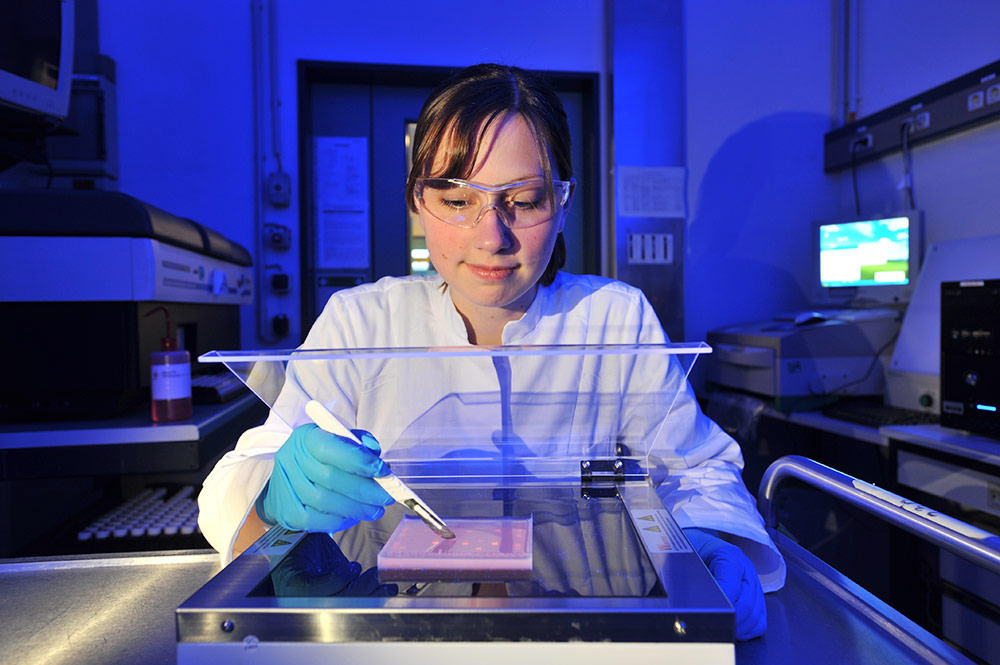
| Degree | Master of Science |
|---|---|
| Standard duration of study | 4 semesters |
| Language of instruction | German |
| Start of programme | winter and summer semester |
| Admission | restricted admission (special admission requirements) |
It is an interdisciplinary and application-oriented science and is considered one of the key future technologies of our time.
At TU Braunschweig, you can look forward to a practice-oriented degree programme in which we will prepare you for your future career in the best possible way. The environment is a big plus here: Important major biological research institutions are located in the region, with which there is intensive cooperation:
Helmholtz Centre for Infection Research (HZI)
Thünen Institute - Federal Research Institute for Rural Areas, Forestry and Fisheries (TI)
German Collection of Microorganisms and Cell Cultures (DSMZ)
Julius Kühn Institute - Federal Research Centre for Cultivated Plants (JKI)
This is what you will benefit from during your studies: Scientists from these research institutions hold lectures and teach in practical courses in the Biotechnology degree programme and also supervise a large number of student research projects, theses and doctoral dissertations. Due to the broad research spectrum, you can choose from a variety of specialisations.
Many institutes of the University also cooperate closely with commercial enterprises and conduct their research in a very application-oriented manner. This offers you the opportunity to carry out your student research project or write your thesis in the industry and to get in contact with potential employers.
Das kommt Ihnen im Studium zugute: Wissenschaftler dieser Forschungseinrichtungen halten Vorlesungen und Praktika im Studiengang Biotechnologie ab und betreuen darüber hinaus auch eine große Zahl von Studien-, Abschluss- und Doktorarbeiten. Durch das breite Forschungsspektrum stehen Ihnen vielfältige Vertiefungsrichtungen zur Verfügung.
Viele Universitätsinstitute kooperieren darüber hinaus eng mit Wirtschaftsunternehmen und betreiben ihre Forschung sehr anwendungsnah. Hier haben Sie die Möglichkeit, Ihre Studien- oder Abschlussarbeit in der Industrie durchzuführen und so erste Kontakte zu potentiellen Arbeitgebern zu knüpfen.
You can apply for this Master’s degree programme if you have a Bachelor’s degree in a related discipline and have sufficient practical laboratory experience. Please note that there are some admission requirements for the Master’s degree programme in Biotechnology. For example, basic knowledge in at least six of the following areas is required: biochemistry, biodiversity, bioinformatics, bioprocess engineering, microbiology, genetics, molecular cell biology, biotechnology, or technical biochemistry. You can find more information on the admission requirements in our admission regulations [in German only]. Please carefully read the information provided before you submit your application!